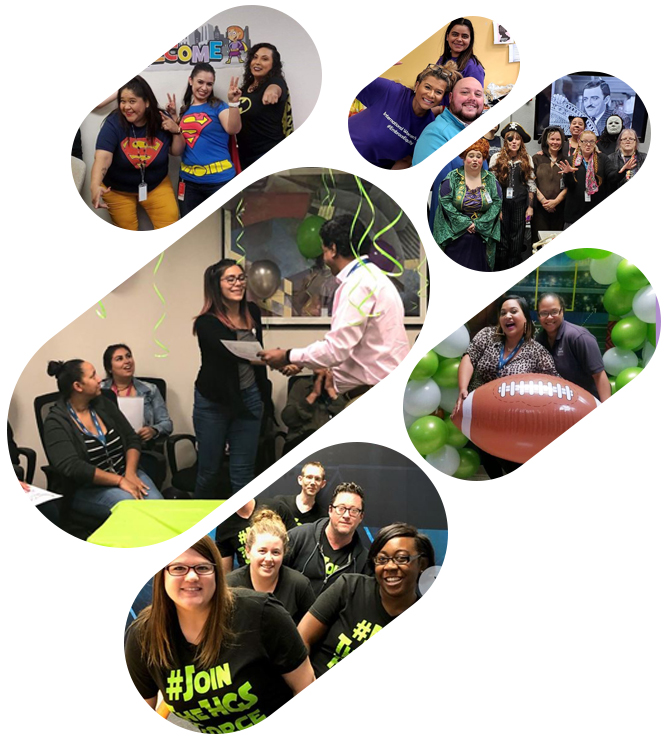In today's hybrid and rapidly paced work environments, building relationships in the workplace has never been more crucial. Whether you're a manager, team leader, or contributor, the strength of your workplace relationships has a direct impact on collaboration, morale, productivity, and retention.
A good team relationship isn't just about being friendly; it's about cultivating a culture of trust, open communication, and shared success. In this blog, we'll explore ten practical and proven ways to strengthen team relationships, boost mutual respect, and foster a collaborative environment where everyone thrives.
Understand the Value of Workplace Relationships
Before we delve into the strategies, let's acknowledge the importance of building relationships in the workplace. At the core of each high-performing team is a bond of solid personal connections. When relationships are cultivated:
- Communication is effortless.
- Conflicts are handled constructively.
- Team members feel comfortable sharing ideas and experimenting with new approaches.
- Productivity and satisfaction skyrocket.
Whether you are starting to build team relationshipsfrom scratch or strengthening existing bonds, purposeful relationship-building is your most valuable asset.

Tips for Building Effective and Collaborative Team Relationships
Let's explore ten practical, step-by-step approaches to building professional relationships and long-term team harmony.
1. Set Clear Expectations
Uncertainty is among the most significant hurdles to trust and alignment. By establishing clear responsibilities, goals, and roles, you make your team feel secure in contributing. When each person knows their role, collaboration is easier.
Utilize team charters, regular goal reviews, and performance check-ins to keep expectations clear and adaptable.

2 .Effective and Open Communication
There can be no successful relationship without clear and truthful communication. Foster openness through frequent check-ins, open-door policies, and feedback mechanisms.
Open communication doesn't necessarily mean speaking more; it also involves listening attentively, asking questions, and addressing misunderstandings promptly.
No matter whether you are in the tech sector, a creative professional, or a call center job, communication is a foundation of good teamwork. Learn more about call center opportunities here.
3. Be Empathetic
Empathy is a workplace superpower. Taking a moment to consider a colleague's perspective can help clear up misunderstandings and prevent tension.
When a coworker misses a deadline, pause before jumping to conclusions. Perhaps they're under pressure or confused about the expectations. Empathy fosters emotional connections that transform coworkers into collaborative partners.
Leaders who lead with empathy tend to see greater performance and allegiance from their teams.
4. Hold Consistent One-on-One Meetings
One-on-one meetings, either weekly or bi-weekly, facilitate connections that go deeper. These meetings are not just performance reviews—they're opportunities to learn about team members' dreams, address concerns, and provide support.
This front-loaded investment in individual relationships fosters trust and alignment at all levels, making it easier to build relationships with team members over time.

5. Appreciate Your Employees
Appreciation is a basic human requirement. A simple "thank you" or public acknowledgement in a team meeting can be highly effective in making individuals feel valued and noticed.
Make the effort to honor milestones, large or small, and put a personal touch to your appreciation. This sense of value naturally boosts engagement and strengthens relationships.
Appreciation is also one of the most critical attributes for professional development, particularly in establishing internal networks. Discover the key qualities for career growth.
6. Collaboration and Teamwork
Healthy collaboration is founded on a shared purpose and mutual respect. Promote cross-functional projects, brainstorming, and joint problem-solving.
Teamwork builds collaborative relationships, allowing all voices to be heard in the decision-making process. Provide rotating roles within meetings or projects to generate equality and empowerment.
Strong collaboration is a result of mutual appreciation and respect for different working styles—elements in good team relationships.

7. Support Personal & Professional Growth
Supportive leaders don't merely focus on what employees can accomplish today but on who they have the potential to become. Make training programs, mentorship, and growth opportunities available.
Get to know employees' career aspirations and help them connect their current jobs to their long-term goals. That type of support communicates that you're interested not merely in outcomes but in their growth and development.
Establishing a learning-conducive environment also helps teams build resilience at work when problems occur.
8. Support Personal & Professional Growth
Supportive leaders don't merely focus on what employees can accomplish today but on who they have the potential to become. Make training programs, mentorship, and growth opportunities available.
Get to know employees' career aspirations and help them connect their current jobs to their long-term goals. That type of support communicates that you're interested not merely in outcomes but in their growth and development.
Establishing a learning-conducive environment also helps teams build resilience at work when problems occur.
9. Be Respectful
Respect in the workplace is more than refraining from rude actions. It values opinions, respects boundaries, and resolves disagreements professionally.
Encourage respectful behavior and create an environment where all individuals feel heard, regardless of their position or experience.
Respectful behavior also entails giving feedback with compassion, refraining from micromanaging, and solving problems without blame or shame.
10. Have a Learning Attitude
Adopt a learner’s mindset. Embrace curiosity, openness, and a willingness to grow. A learning team grows together. Create knowledge-sharing opportunities, lessons-learned sessions, and questioning space. A learning mindset leader inspires their teams to innovate, develop, and become closely bonded through shared discovery.
Building Relationships at Work: Real-Life Examples
Let's examine a few building relationships at work examples to observe how these strategies are brought to life:
- Weekly Team Feedback: Managers at a technology firm introduced weekly feedback sessions, where team members took turns sharing their ongoing challenges and concerns. This openness enhanced communication and enabled team members to work more together.
- Informal Connections:In a call center customer service department, a team lead initiated a "coffee chat" hour, enabling employees to discuss non-work-related issues during their breaks. This established personal connections that facilitated teamwork during busy times.
- Celebrating Small Wins: A distributed team leveraged monthly appreciation emails to toast small victories. This improvement boosted morale and resulted in a 25% reduction in employee turnover within a year.
These stories demonstrate that intentional relationship-building yields long-term benefits in productivity, collaboration, and overall well-being.
Final Thoughts
At its core, building relationships in the workplace is about people, not processes. It’s about caring, connecting, and creating a culture where individuals feel seen, heard, and supported. Organizations like HGS US are leading the way in creating people-first cultures by promoting trust, open communication, and professional development—cornerstones of strong workplace relationships.
Whether you're new to the field or experienced, relationship-building is an investment that enhances communication, collaboration, and long-term success.
If you’re new to the workforce or navigating the early stages of your career, mastering these skills can help set you apart. Explore these tips for success in corporate life to get started.
Strong workplace relationships aren’t built overnight—but with consistency, empathy, and action, they are absolutely within reach.
FAQs
Why is building strong relationships with your team important?
Strong relationships foster trust, boost collaboration, reduce misunderstandings, and enhance team morale—all of which contribute to increased productivity and job satisfaction.
What are some practical ways to build trust within a team?
Be consistent, follow through on promises, communicate openly, give credit where due, and show vulnerability when appropriate.
How can I effectively handle conflicts within the team?
Address conflicts early. Listen to all perspectives, remain neutral, and work toward solutions rather than placing blame. Encourage open dialogue in a safe and supportive environment.
How can I develop a positive team culture?
Promote shared values, recognize contributions, celebrate wins, foster inclusivity, and ensure transparent communication at every level.
 US
US Canada
Canada Colombia
Colombia India
India Jamaica
Jamaica Philippines
Philippines UK
UK SA
SA
